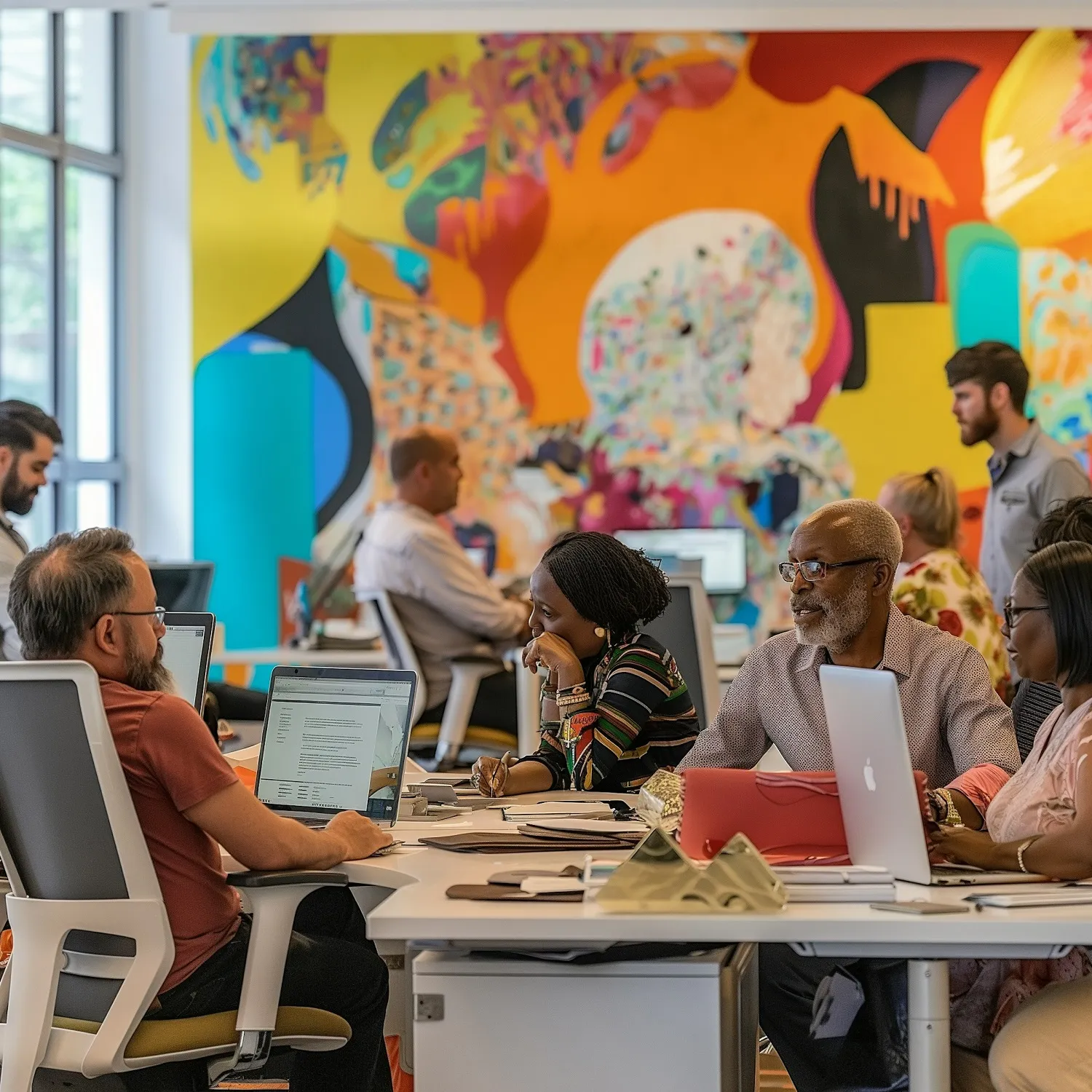The Horizon Institute is the world's first Networked Guild Enterprise (NGEn) think tank, pioneering a revolutionary approach to addressing 21st-century systemic challenges. By mobilizing a global network of researchers, technologists, civic leaders, storytellers, and practitioners, the Institute operates as a transparent, agile ecosystem that co-creates and openly publishes cutting-edge policy solutions.
Horizon focuses on five critical areas: educational transformation and equitable access; ethical frameworks for emerging technologies including AI and biotech; climate resilience through urban adaptation and regenerative systems; public health and social safety infrastructure; and civic innovation through participatory democracy and public sector redesign.
Unlike traditional think tanks with their slow, centralized structures, the Horizon Institute's networked guild model enables rapid response to global challenges—from workforce disruption to education system failures—through distributed intelligence, peer collaboration, and horizontal scaling of solutions that maintain democratic legitimacy while operating at the speed of change.
The Institute champions a distributed, guild-based model that connects diverse experts globally—from researchers to practitioners—recognizing that 21st-century challenges require collective intelligence rather than isolated expertise.
By openly publishing all policy solutions and operating with full transparency, the Institute ensures that knowledge becomes a public good accessible to all, not a commodity controlled by few.
The Institute values rapid response and real-time adaptation, replacing slow bureaucratic processes with nimble networks that can sense changes, experiment quickly, and scale solutions horizontally within days rather than years.
Through participatory approaches that unite affected communities with experts, the Institute ensures that solutions maintain democratic legitimacy by including diverse voices—from local educators to civic leaders—rather than imposing top-down mandates from elite institutions.

We help society safely manage powerful new technologies like AI and biotech by creating practical rules and guidelines that protect people's rights while allowing innovation to flourish for the common good.
AI safety and ethics frameworks
Biotechnology regulation
Geoengineering oversight
Digital rights protection
We help governments, schools and communities share what works in teaching, respond quickly when education systems fail or face crisis, support teachers through peer networks, and let local communities help design what their children learn.
Scaling innovative teaching methods
Crisis education response
Education support networks
Community-designed curricula
We help individuals and organizations prepare for an AI-powered economy by tracking which skills are needed where, letting people lead their own career transitions, designing new ways for humans and AI to work together, and creating benefits that follow people between jobs.
Real-time skills mapping
Worker-led transition pathways
New work models for AI age
Portable benefits systems
We help communities prepare for climate change with strategies designed for their specific needs, evaluate new climate technologies to see what actually works, build neighborhood-level support systems, and test new policies that other communities can easily adopt and adapt.
Local adaptation strategies
Technology assessment
Community resilience building
Policy innovation testing
.webp)
Network members across the globe identify emerging challenges and opportunities through their local contexts, bringing diverse perspectives and early signals of change that centralized systems often miss.
We rapidly assemble the right mix of experts, affected communities, and practitioners into working guilds, ensuring those closest to the problem are central to finding solutions rather than consulted as an afterthought.
Working guilds develop solutions through rapid experimentation and iteration, combining local knowledge with global expertise while testing ideas in real-world conditions rather than theoretical models.
Successful solutions are shared openly across the network, allowing other communities to adapt and improve them for their own contexts, creating a multiplier effect rather than one-size-fits-all mandates.
The network continuously learns from implementation, feeding insights back to improve solutions in real-time and preparing to sense the next wave of challenges, keeping the cycle adaptive rather than fixed.
The Horizon Institute is powered by a diverse team of pioneers who believe the biggest challenges require fresh perspectives from unexpected places.
Our network includes Abbas Kazmi, a Forbes 30Under30 serial entrepreneur who has invested in unicorns like Monzo and Spring Health while building bridges between global innovation ecosystems. We're joined by private equity leaders like Rohan Arora from H.I.G. Capital, technology entrepreneurs like David de Min who's transforming a Napoleonic fort into a sustainability hub, and Sebastian Haigh who's advised on billions in tech investments. Our team includes Joseph Michael Daniels, who built some of the world's first net zero buildings before age 30, and Catalina Valentino, recognized as Young Entrepreneur of the Year while still in her early twenties.
What unites us isn't just our credentials—though our team includes Oxford and INSEAD scholars, World Economic Forum fellows, and leaders from BlackRock to Microsoft. It's our shared belief that real solutions come from connecting those who study problems with those who live them daily. We measure success not by reports published or conferences hosted, but by whether struggling communities find solutions that work, whether workers navigate change with dignity, and whether the next generation has the tools to build a better future.
At Horizon, we don't just think about change—we build the networks and create the conditions for it to happen.








